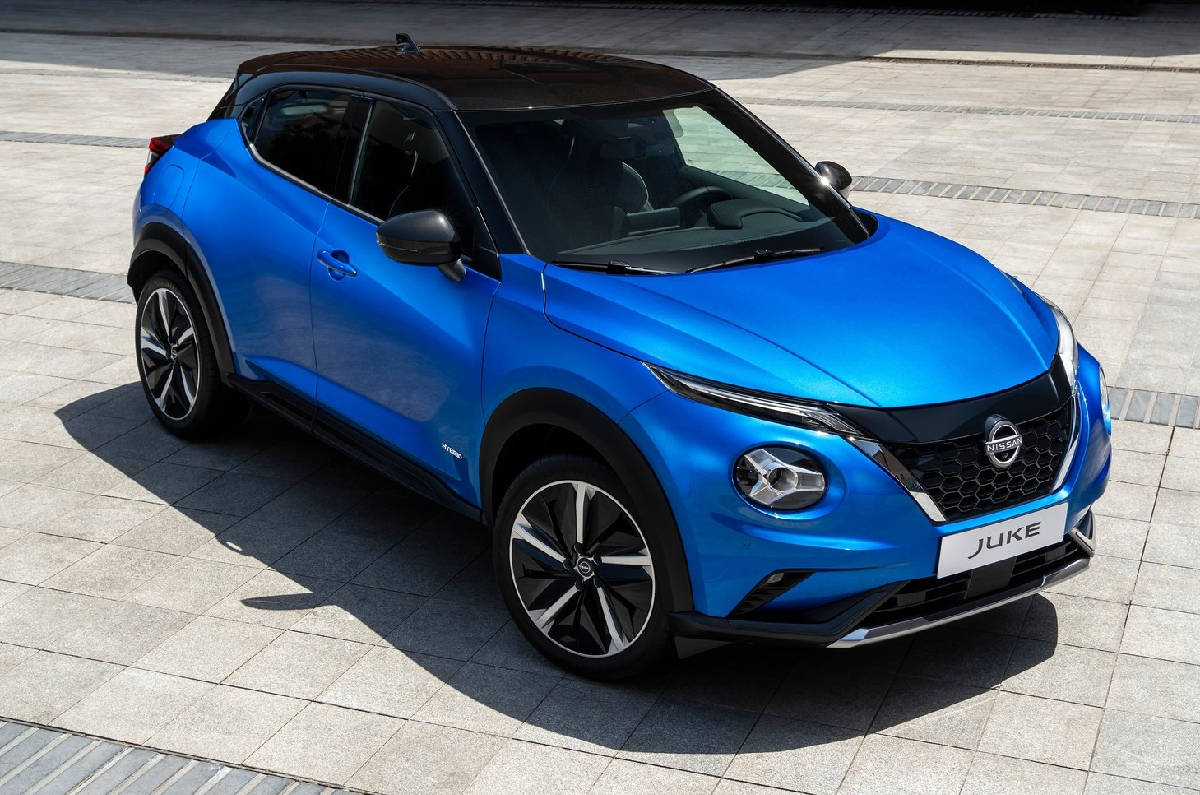
The electric Nissan X-Trail, Qashqai and Juke will sit on the same platform as the Ariya EV SUV.
Nissan will globally reveal the electrified versions of the Qashqai, Juke and X-Trail SUVs from 2025 onwards. The move would build on the popularity of the firm’s e-Power hybrid powertrain, especially in Europe, and also aid its push to ensure that EVs comprise more than half of Nissan’s global sales by 2030.
- Electric Qashqai, X-Trail, Juke to arrive between 2025-2027
- Nissan is evaluating Qashqai and Juke for India
- Nissan to also launch India-specific SUVs from 2025
The hybrid Qashqai has been a great contributor to Nissan’s European sales and it will transition into pure EV in a phased manner, the company says. Additionally, Nissan is also looking at an all-electric alternative to revive X-Trail sales, which have dropped considerably in the continent.
Nissan Qashqai, X-Trail, Juke EVs will have the same platform as Ariya
The electrified Qashqai, X-Trail and Juke will sit on the EV-dedicated version of Renault-Nissan-Mitsubishi’s Common Module Family (CMF) platform, which can accommodate several body shapes, wheelbase lengths and battery sizes. It was first used on the Ariya all-electric SUV, and now also underpins the Renault Megane E-Tech Electric.
Currently, the similarly sized Qashqai and X-Trail use the CMF-CD platform, while the Juke sits on the smaller CMF-B platform, also used by the Renault Clio. Any electric variants are expected as replacements for the current-generation models and scheduled to arrive between 2025 and 2027. A Juke EV is due first, but Nissan hinted that all three will be sold alongside an e-Power variant.
Nissan Qashqai, X-Trail, Juke EVs will have a range of over 500km
By that time, battery technology will have moved on from that which is currently available. In December last year, David Moss, Nissan’s senior vice president for R&D in Europe, confirmed that a new generation lithium-ion battery would arrive “within a couple of years” with “better energy density and efficiency and a lower cost”.
These cars will likely feature batteries that extend their ranges well beyond the 501km offered by the 90kWh pack in the Nissan Ariya, with reduced charging times. The trio will arrive too early to use any form of Nissan’s solid-state battery technology, which is expected to arrive in 2028, according to Moss.
The new cells will provide significant boosts to range and charging rates, with the latter hitting 400kW. Motors will also have evolved, allowing peak power and torque outputs above those of the single-motor Ariya’s 242hp and 300Nm respectively. Improved energy recovery and efficiency may also provide a further boost to each vehicle’s range.
Nissan has confirmed the X-Trail for India
In October 2022, Nissan showcased the existing generations of the X-Trail, Qashqai and Juke SUVs as future CBU models. Out of these, the carmaker has confirmed it will launch the X-Trail in India, while the other two are being evaluated. Recently, the Ariya all-electric SUV was spotted in India, although Nissan hasn’t said if it would be launched here.
Nissan and its alliance partner Renault also announced a fresh investment of Rs 5,300 crore in the Indian market. The investment will primarily be to launch six new locally produced models, three each from Renault and Nissan. Nissan will launch two made-for-India SUVs and an entry-level EV from 2025 onwards. The carmaker is also considering its derivative of the Renault Triber MPV.
